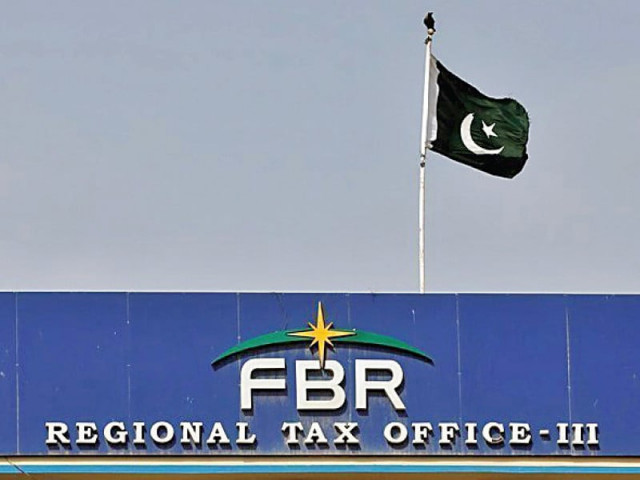PM probes FBR’s Rs25b contract
Body led by bureaucrat investigates flawed T&T project, despite clearances

A committee led by a top bureaucrat has initiated an inquiry to hold more individuals accountable within the Federal Board of Revenue (FBR) for awarding a faulty Rs25 billion contract aimed at tracing the production activities of companies. This comes despite another fact-finding body’s conclusion that there was no wrongdoing in the award of the deal.
The committee, headed by Secretary Finance Imdad Ullah Bosal, began its investigation following directives from Prime Minister Shehbaz Sharif who, a day earlier, denounced the Track & Trace system—an initiative aimed at curbing tax evasion—as a complete fraud against the nation and economy.
This marks the fourth inquiry ordered by Sharif into the Rs25 billion track and trace contract, which was awarded by the government of Pakistan Tehreek-e-Insaaf (PTI). Former governor of the State Bank of Pakistan (SBP), Tariq Bajwa, conducted a previous fact-finding inquiry but found no evidence of malpractice in the contract award.
Finance Minister Muhammad Aurangzeb is also conducting two separate inquiries into the same contract.
The newly-formed four-member committee has been tasked with identifying those responsible for the flawed award and execution of the Track and Trace project. Initially introduced in 2019 to combat tax evasion, the Track & Trace system was first implemented in the cigarette industry before expanding to other sectors such as fertilisers and sugar.
The roles of former and current project directors of the Track and Trace Project are under scrutiny.
This move aligns with the prime minister’s commitment to zero tolerance for corruption and inefficiency within the FBR, and came on the heels of his decision to remove 25 compromised officers from the tax machinery, including one recipient of Tamgha-i-Imtiaz, who had been awarded the honour by Sharif’s previous government.
Sources indicate that the Bosal-led committee held proceedings on Saturday and sought additional information and documents from the FBR to assess the involvement of FBR officers in the flawed project conception, design, and implementation.
In addition to Bosal, the committee comprises Nauman Khalid, Member Technology CDA; Babar Najeeb Bhatti, CEO of the National Information Technology Board; and Owais Nauman Kundi, Additional Secretary Law and Justice.
Karamat Chaudhry, Member Digital Initiatives, represented the FBR before the committee.
Earlier, the prime minister had established a fact-finding committee under former governor of SBP Tariq Bajwa. The committee attributed delays and poor implementation of the track and trace project to the FBR, the contractor, and manufacturers. However, it found no evidence of wrongdoing in the contract award. The sources, however, said that the PM was not happy with this finding and decided to set up another committee led by his trust-worthy bureaucrat Imdad Ullah Bosal.
Following a review of the fact-finding committee report, the prime minister has directed the newly constituted inquiry committee to identify those responsible for the shortcomings in project conception, contract design, and implementation by the FBR.
According to a notification from the PM Office, the poor implementation of the project resulted in serious lapses and delays, leading to continued loss of government revenues.
The committee has been tasked with determining responsibility for approving a poorly designed request for proposal for the contract. It will also identify those responsible for signing inefficient and poorly structured Service Delivery Agreements with the contractor, which lacked provisions for third-party audit.
Another task of the committee is to identify the officers accountable for the inordinate delay in forming oversight boards and sectoral committees. Likewise, the committee will investigate why the necessary changes were not implemented in the system to address the issues highlighted by the contractor through change requests.
Furthermore, it will determine accountability for the failure to integrate the tracking system throughout the supply chain.
The PTI government had awarded the estimated Rs25 billion contract to a consortium consisting of M/s AJCL, MITAS, and Authentix, but the system largely remained non-functional. While operational in the tobacco and fertiliser sectors, the track and trace system faced challenges in the sugar and cement sectors. Counterfeit stamps were even discovered on cigarette packaging within the tobacco sector.
The consortium led by AJCL won the contract based on the highest technical score, despite its financial bid being 52% higher than the lowest bid. The price difference between the lowest financial bid of Rs499 per thousand stamps and the second highest bid offered by the consortium of AJCL Private Limited was Rs259 per thousand stamps.
This resulted in an additional payment of Rs8.5 billion to the bidder over the five-year contract period. The total estimated five-year contract value was Rs25 billion. The five-year contract can be extended by another three years, taking the total additional financial impact to Rs13.5 billion.
Former prime minister Imran Khan inaugurated the Track and Trace system in 2021 for electronic monitoring of manufacturing and sales in important sectors such as tobacco, fertilisers, sugar, and cement.
Published in The Express Tribune, April 28th, 2024.
Like Business on Facebook, follow @TribuneBiz on Twitter to stay informed and join in the conversation.



















COMMENTS
Comments are moderated and generally will be posted if they are on-topic and not abusive.
For more information, please see our Comments FAQ